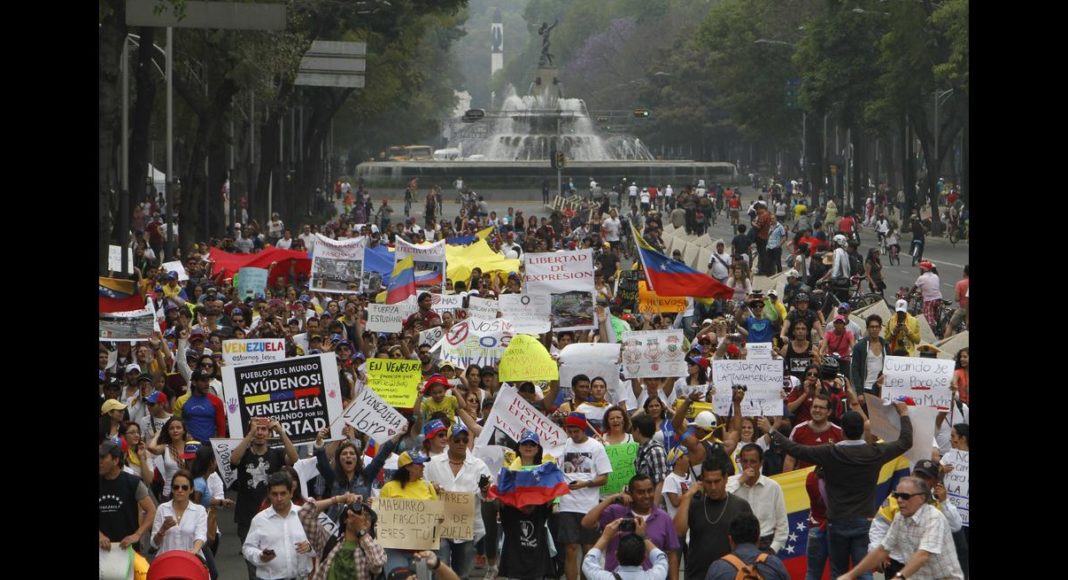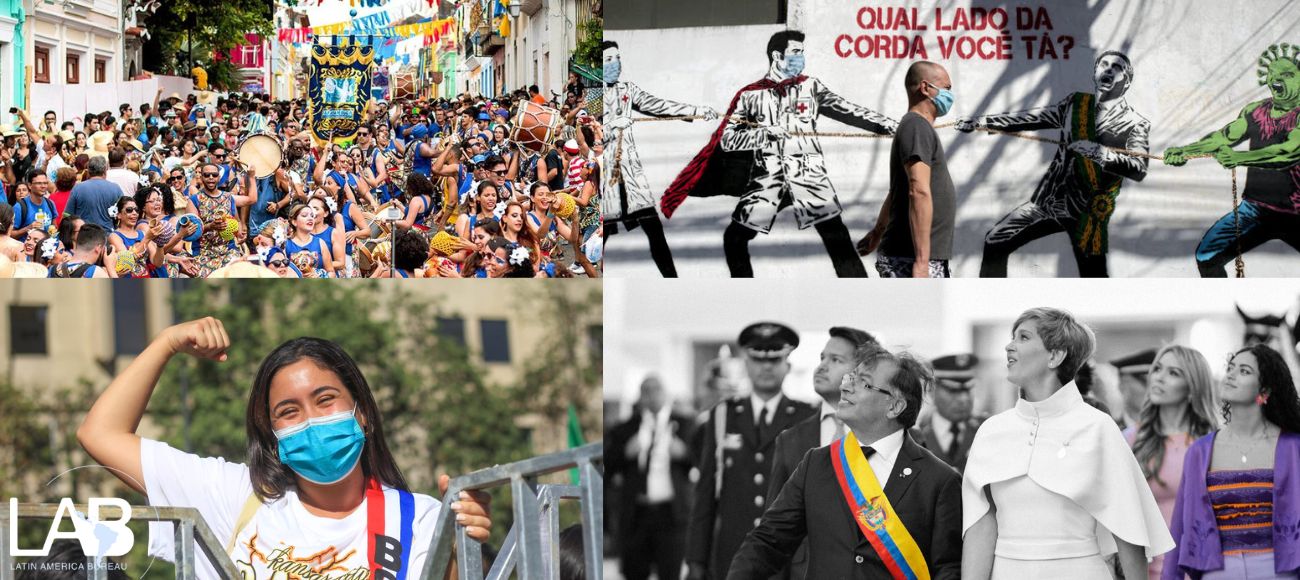
Venezuela — a view from the grassroots part 4
The governmental use of armed militias to dissolve protests is a highly reactionary resource that must be opposed. The increase of media censorship, by way of state-corporation deals or co-operation, attacks our basic right to non-biased information. The guarantee of this basic right is incompatible with the privatization of communication channels and with the bureaucratic management of state media. The Bolivarian National Intelligence Service (SEBIN) is a repressive body with a long history of human rights violations since its creation under the initials of DISIP in 1969 and it must be dissolved. Its archives must be opened to the public.
All those detained during demonstrations must be freed, and an independent investigative body must be commissioned to document the abuse and the murders carried out by police, the military and the militias in reaction to the protests. Moving beyond the current wave of protests, the ongoing trials against over three hundred workers, campesinos and indigenous people charged with protest-related offences must be dismissed. Those who consider themselves pro-democracy or revolutionary must demand that these procedures replace the national security doctrine promoted by Maduro which puts the interests of the capitalist state above social justice and human rights.
As weeks pass, the protests have spread to the poorer sectors of Caracas and other cities throughout Venezuela. Primarily through the medium of cacerolazos (pot-banging protests), expressions of discontent can now be heard in barrios that were long-time bastions of chavismo. This is evidence of the disapproval that the impoverished majorities feel towards the liberal economic adjustment measures proposed by the government. Once again, these demands are not represented by the leadership of opposition coalition, Democratic Unity Roundtable (MUD), who remain silent on this point. The MUD cannot propose any change in this sense, given its commitments to the establishment, to transnational capital and to the imperialist governments of Europe and the USA.
The promotion of social and economic justice, alongside democratic liberties, is a task that can only be fulfilled by leftist organisations that are not aligned with the government or MUD. In an article entitled ‘Venezuela’, the Panamanian songwriter Rubén Blades called for the Venezuelan students to mobilise ‘beyond the sterile division caused by the government and the opposition’ and to ‘clarify that they will not accept the proposals of the two sides in dispute as the only alternatives’. Sadly, the current student movement has been co-opted by an opposition that moves within the government’s bourgeois establishment. Despite this, a select number of political organisations – including the Socialism and Liberty Party (PSL) – work towards the elaboration of an autonomous position vis-à-vis the current crisis, aligning itself with the student movement and with movements of the popular sectors and the working class.
The recent economic and social disaster has dispelled the myths of the chavista project. The current government’s attempt to overcome national structural problems within a capitalist framework through backing the protagonistic role of the nationalist, military and corporate bourgeoisie has failed, and it now finds itself in an advanced stage of decomposition. The social assistance programs implemented following the defeat of the 2002 coup are past their peak, having receded since 2007. The corporatization of social organisations continues unabated, becoming stronger with each legal barrier placed against the right to protest and the right to strike.
The increased deployment of repressive and administrative state apparatuses in order to diminish social conflicts is troubling. The imprisonment of the Yukpa cacique Sabino Romero and the syndicalist Rubén González between 2009 and 2011, alongside the recent detention of ten oil workers who participated in a worker’s assembly at the Puerto La Cruz oil refinery, among them the general secretary of the Unitary Federation of Oil Workers, José Bodas, are clear examples of this. The economic debacle adds to this crisis, and yet the private banks and the import corporations and the transnational sectors ingrained within the oil industry have all come off well. The result is that the reactionary Utopianism of a ‘socialism with capitalists’ has fallen apart. It is now up to the revolutionary left to rescue the banners of socialism that chavismo has utilised for its own purposes.
According to official statistics, over nine million Venezuelans (a third of the population) live in conditions of poverty. Almost three quarters of public sector workers earn salaries below the cost of the ‘canasta básica’– the governmental measure of minimum monthly food staples and basic outgoings for each household. More than two minimum wages are now required to cover this basic cost. Salary increases above inflation are only afforded to the military sector. The working class can undoubtedly play a decisive role in confronting the government’s economic policy, defending our democratic rights, and voicing demands for changes to wages and salaries, including: a minimum wage equal to the ‘canasta básica’; the elimination of VAT; the complete nationalisation of the oil industry without joint ventures with transnational companies; agrarian reform guaranteeing the increase of agricultural production and the access to land for those who labour on it; the rescuing of the basic industries in Guayana and the industries acquired by the State that are now unproductive; support for the territorial demands of the indigenous peoples; the suspension of foreign debt payments and the cancellation of treaties on double taxation signed with the U.S. and other countries, which allow transnational corporations to evade over 17 billion dollars in taxes annually. The Socialism and Liberation Party (PSL) is pushing for an encounter between trade unions and popular organisations in Caracas at the beginning of March to discuss a unitary agenda of demands as well as a plan for mobilisation. The workers, the students, and the popular sectors have the possibility of raising their voices and rejecting their recent role as cannon fodder to the government and MUD.
* Simón Rodríguez Porras is a militant in the Socialism and Freedom Party (PSL).
This article was originally published in Spanish on February 23, 2014 at http://laclase.info. The English version was edited by Rebecca Jarman.

